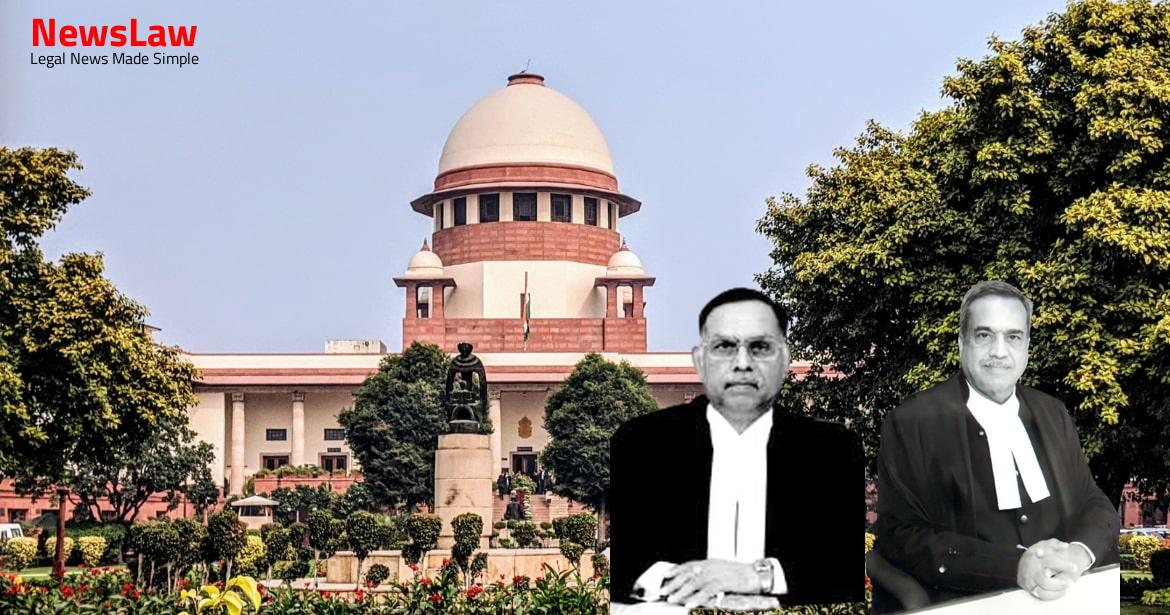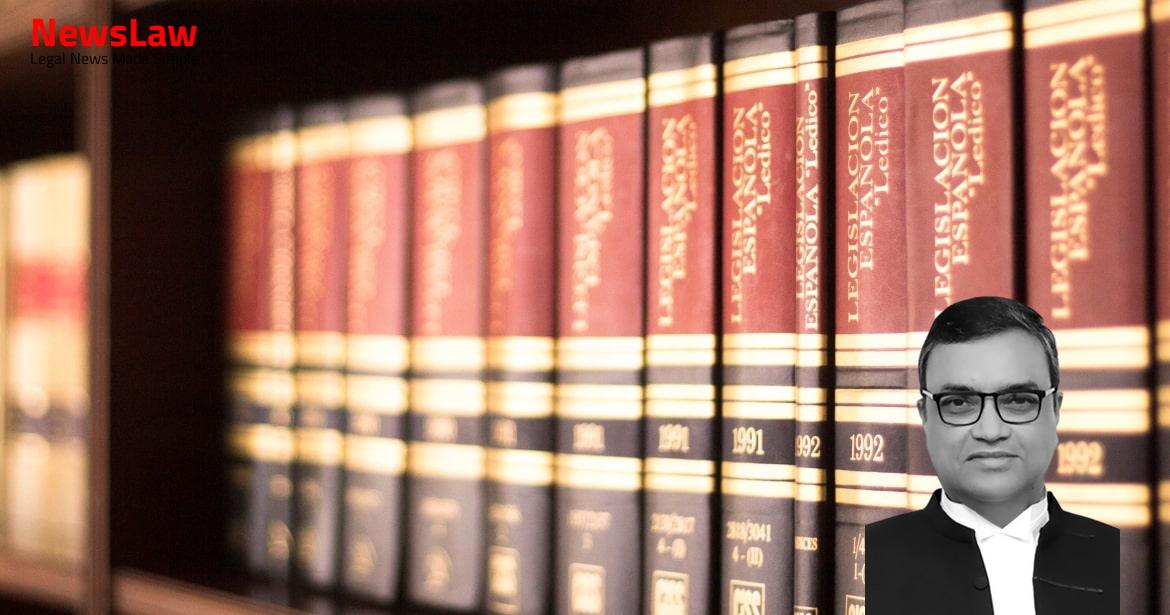Delve into the intricate legal analysis provided by the High Court in a recent appointment dispute case. The court’s evaluation of adherence to recruitment rules, timeliness in raising challenges, and consequences of delayed actions sheds light on the importance of procedural compliance in legal matters. Stay tuned to unravel the complexities of appointment disputes through a lens of legal analysis and court judgments.
Facts
- The writ petition was filed challenging the order of the Chancellor dated 08.07.2009 rejecting the representation made by respondent No.4.
- Respondent No.4 filed a writ petition praying for the quashing of the order dated 08.07.2009 and the appointment order dated 08.08.2005 of the respondent No.4 as Assistant Professor.
- The High Court allowed the writ petition filed by respondent No.4, setting aside the Chancellor’s order.
- Respondent No.4 claimed that his experience at the time of appointment as Senior Research Fellow in W.H.O. was not considered.
- A representation was addressed by respondent No.4 to the Chancellor regarding the appointment and claim of seniority as Assistant Professor in the University.
- The appellant, aggrieved by the judgment of the High Court, filed appeals challenging the Division Bench judgment of the High Court setting aside the order of the Chancellor.
- Appellant and University filed counter affidavits contesting the claim of respondent No.4.
- Division Bench of the High Court granted the writ petition.
- Operative portion of the order was to allow the writ petition.
Also Read: Analysis of Seniority Determination in Armed Forces Personnel Case
Arguments
- The appellant was senior to respondent No.4 from the beginning, and the claim of respondent No.4 regarding seniority was misconceived.
- Representations were submitted by respondent No.4 only after his promotion as Assistant Professor in 2007.
- The Selection Committee found the appellant eligible for the post of Assistant Professor based on his service experience.
- Respondent No.4 did not fulfill the qualifications for Assistant Professor at the time of application.
- Respondent No.4 submitted representations and claimed seniority over the appellant only after his promotion.
- Appointee filed a writ petition for salary after termination by Management Committee.
- Secondary Grade Teachers filed representations for salary, rejected by District Education Officer.
Also Read: Analysis of Circumstantial Evidence in Criminal Conviction
Analysis
- The Chancellor considered the representation of respondent No.4 regarding seniority over the appellant.
- Chancellor noted that respondent No.4’s experience as a Senior Research Fellow with the Government of India and WHO was not counted as experience by the Medical University.
- The appointment of the appellant as an Assistant Professor on 08.08.2005 was not challenged by respondent No.4 within the stipulated three-month period as per Section 53 of the Act, 2002.
- The University clarified that the experience of Dr. Rao as a Senior Research Fellow with WHO was not considered for the appointment because there was no provision for it in the bylaws.
- The appointments made in violation of the mandatory provisions of a Statute were deemed illegal and void.
- The complaint by respondent No.4 about non-inclusion of his teaching experience in WHO was rejected by the Court due to the doctrine of delay and laches.
- The Court emphasized the importance of raising appointment disputes within three months for an early resolution by the Chancellor.
- The appointments made in violation of Rule 663(d) of the Bihar Police Manual were considered illegal and led to the termination of services.
- The delay in approaching the High Court under Article 226 was considered fatal in the case, emphasizing the importance of timely action.
- The Act governing appointments at the University provides a mechanism for questioning appointments within three months via representation to the Chancellor.
- Section 53 of the UP Act No. 8 of 2002 states that any question regarding the election or appointment of a person in a university authority must be referred to the Chancellor, whose decision is final.
- A proviso in the section mentions that no reference can be made more than three months after the issue could have been initially raised, except in exceptional circumstances where the Chancellor can entertain a reference after the specified period.
- The relevant statute for the qualification of Assistant Professors at Lucknow University is Statute 11.02 B2, which specifies the required qualifications and teaching experience.
- Both the appellant and respondent No. 4 had applied for positions, with the Selection Committee recommending their appointments to the positions of Assistant Professor and Lecturer, respectively.
- The University, in its response, cited Section 53 of the Act, 2002, and stated that the provisions of previous statutes of Lucknow University would continue until new statutes are made.
- The Act further mentions the continuity of provisions until new statutes are formulated.
- An appointment made in violation of recruitment rules is a violation of Articles 14 and 16 of the Constitution and is considered a nullity.
- Such appointments are liable to be cancelled as they do not adhere to the established rules.
- The case referred to in the judgment was based on a different premise and does not support the respondent No.4 in this context.
- The appellant cited a judgment in the State of Jammu and Kashmir Vs. R.K. Zalpuri and Ors., (2015) 15 SCC 602 where a writ petition challenged a dismissal order after six years.
- High Court erred in quashing the appointment of respondent No.4 as Assistant Professor and the order of the Chancellor.
- Challenge to appointment after more than three years cannot be entertained.
- Respondent No.4 never challenged the appointment of the appellant as Assistant Professor but filed a representation claiming seniority.
- The High Court should have only considered the claim of respondent No.4 for seniority rather than entertaining a challenge to the appointment of the appellant.
- Challenging an appointment after a significant time period goes against the provisions of the Act, 2002 and is not in the interests of justice.
Also Read: Land Compensation Dispute Under Kerala Forest Act
Decision
- High Court committed error in quashing the order and issuing directions
- Consequences to follow accordingly
- Appeals allowed, High Court’s judgment set aside
- Writ petition filed by respondent No. 4 dismissed
- Any other writ, order, or direction deemed fit may be passed
- Writ petition allowed with cost
Case Title: POORAN CHAND Vs. CHANCELLOR (2021 INSC 46)
Case Number: C.A. No.-000268-000269 / 2021



